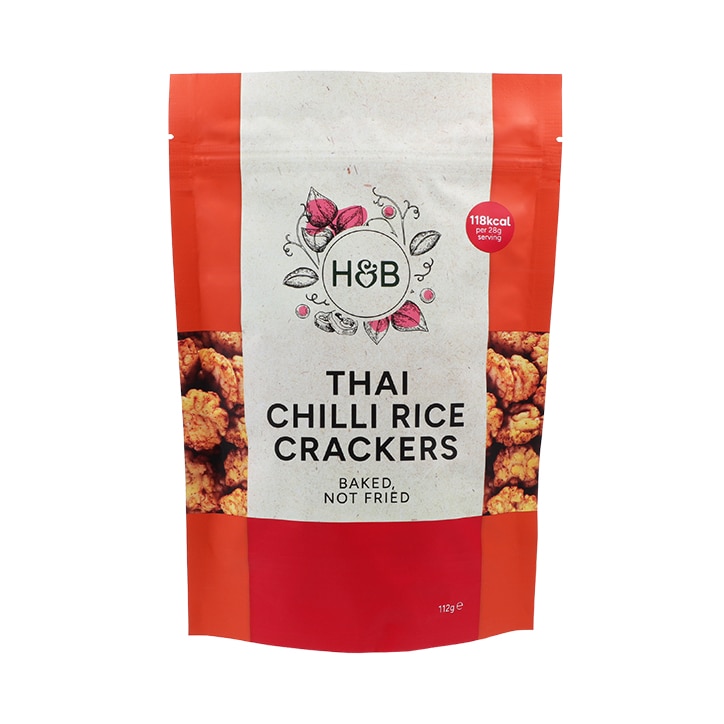20% off €35
Code:TREAT
OffersSave up to 1/2 priceBuy One Get One 1/2 Price3 for 2 Mix & MatchPayday EventBuy 1 Get 1 FreeOnline OnlyOutlet2 for €23 Mix & MatchIntroductory Offer2 for €6 Mix & MatchVitamins & SupplementsVitamins & Supplements Shop AllCBDCollagen & SilicaHair, Skin & NailsShop all Hair, Skin & NailsHair GrowthFunctional MushroomsVitaminsShop all VitaminsMultivitaminsVitamin AVitamin BVitamin CVitamin DVitamin EVitamin KVitamin DrinksMineralsShop all MineralsMagnesiumIronZincCalciumSeleniumChromiumSupplementsShop all SupplementsFibre SupplementsAcidophilus & Friendly BacteriaPeppermint OilGrapeseed ExtractLecithinCollagen & SilicaOmega & Fish OilsPlant Sourced SupplementsSuperfood SupplementsArnicaApple CiderRaspberry KetonesAloe VeraChondroitin & MSMCo Enzyme Q10Evening Primrose OilGarlicGlucosamineGlucomannanSeaweed, Kelps and AquaceuticalsDigestive EnzymesCharcoalWomen's HealthShop all Women's HealthMenopauseMenstrual SupportUrinary Tract HealthPregnancy & ConceptionMen's HealthShop all Men's HealthProstate HealthChildren's HealthConditionShop all ConditionCholesterolAllergy & Hay Fever CareAnxiety SupportBone & Muscle HealthMuscle Support & Joint PainBrain & Memory SupportWomen's HealthMen's HealthChildren's HealthCold & Immune SupportFatigueDigestive HealthHair, Skin & NailsHeart & CirculationLiver CareMood SupportSexual HealthSleep & RelaxationStress ReliefVisionHerbal & Licensed RemediesShop all Herbal & Licensed RemediesRescue RemedyAshwagandhaMilk ThistleGinseng & GuaranaHomeopathic & Flower RemediesShop all Homeopathic & Flower RemediesRescue RemedyFlower RemediesVegan Vitamins & SupplementsHolland & BarrettVitabioticsSolgarNew NordicBioglanNatures AidBetterYouNovominsWild NutritionNeubria3 for 2 Mix & MatchBuy One Get One 1/2 PricePayday EventBuy 1 Get 1 FreeSave up to 1/2 priceOnline OnlyOutletIntroductory OfferDairy FreeGluten FreeSesame Seed FreeCelery FreeCereal FreeCrustaceans FreeEgg FreeFish FreeKiwi FreeLupin FreeNew inFood & DrinkFood & Drink Shop AllEasterVegan FoodDried Fruit, Nuts & SeedsShop all Dried Fruit, Nuts & SeedsDried FruitNutsSeedsMixesChocolate CoatedTeas, Coffee & Hot BeveragesShop all Teas, Coffee & Hot BeveragesCoffee & Coffee SubstituteMushroom DrinksTeasMatcha & Green TeaSleep & Relaxation TeaSlimming TeaWomen's Health TeasDrinks & JuicesShop all Drinks & JuicesMultipack DrinksProtein ShakesJuices & Health ShotsNatural Energy DrinksKombuchaSoft DrinksWaterAlcohol Free DrinksKefirSuperfoodsShop all SuperfoodsSuperfood PowdersMoringa PowderSpirulinaGoji BerriesBaobabChia SeedsHealthier SnackingShop all Healthier SnackingProtein BarsLow Calorie SnacksChocolate, Cakes & BiscuitsSavoury SnacksSweet SnacksSnack BarsCrisps & ChipsFlapjacksPopcornFood CupboardShop all Food CupboardCondiments & SaucesApple Cider VinegarSuperfoodsBreakfast CerealsHoney, Jams & SpreadsTinned FoodsRice, Pasta, Pulses & GrainsHoney, Jams & SpreadsShop all Honey, Jams & SpreadsManuka HoneyHoneyNut ButtersJams & ChutneysSpreadsPateBreakfast CerealsShop all Breakfast CerealsCereals, Bran & FlakesGranolaMuesliOats & PorridgeBreakfast BarsCookingShop all CookingCooking IngredientsApple Cider VinegarCondiments & SaucesSoya & Meat AlternativeSoup & Ready MealsRice, Pasta, Pulses & GrainsHerbs, Spices & SeasoningGravy & StockHome BakingShop all Home BakingBaking MixesBreadFlourSweeteners & Sugar AlternativesEgg SubstitutesDairy AlternativesShop all Dairy AlternativesOat, Rice & Hemp DrinksSoya DrinksNut DrinksCoconut DrinksNutritionally Complete FoodHolland & BarrettNaturyaGrenadePukkaNakdHeath & HeatherNOMOPerfectTedTwiningsManuka DoctorSave up to 1/2 priceBuy One Get One 1/2 Price3 for 2 Mix & MatchPayday EventOnline OnlyBuy 1 Get 1 Free2 for €6 Mix & MatchOutletGluten FreeDairy FreeWheat FreeSugar FreeEgg FreeMilk FreeSoya FreeNut FreeSesame Seed FreeCelery FreeNew inSports NutritionSports Nutrition Shop AllProteinShop all ProteinClear ProteinProtein VeganMeal ReplacementsWhey ProteinMass GainersDiet ProteinCaseinSports SupplementsShop all Sports SupplementsSports CollagenBars, Drinks & SnacksShop all Bars, Drinks & SnacksEnergy BarsProtein BarsProtein ShakesProtein SnacksNutritionally Complete FoodMeal Replacement ShakesPre Workout & EnergyShop all Pre Workout & EnergyPre WorkoutAmino Energy PowdersIntra WorkoutKetoPost WorkoutAmino AcidsShop all Amino AcidsBCAAArginineCreatineShop all CreatineCreatine PowderRehydrationShop all RehydrationElectrolytesEnergy GelsVegan Sports NutritionShop all Vegan Sports NutritionVegan ProteinVegan Protein BarsVegan Pre Workout & EnergyVegan Amino AcidsVegan CreatineSports AccessoriesShop all Sports AccessoriesBottles & ShakersFitness GoalShop all Fitness GoalRecoveryMuscle & StrengthLean MuscleEnergy & EnduranceDiet & Weight LossKetoPrecision EngineeredOptimum NutritionApplied NutritionMyproteinGrenadeUSNPhDTriActiveSiSPulsinSave up to 1/2 pricePayday EventBuy One Get One 1/2 PriceBuy 1 Get 1 FreeIntroductory OfferOnline Only3 for 2 Mix & Match2 for €35 Mix & MatchDairy FreeGluten FreeSugar FreeSoya FreePalm Oil FreeCelery FreeCereal FreeCrustaceans FreeEgg FreeFish FreeNew inBeautyNatural Beauty Shop AllAromatherapy & HomeShop all Aromatherapy & HomePure Essential OilsBlended Essential OilsBase & Carrier OilsHolisticSkincareShop all SkincarePremium SkincareFace CareBody CareSun CareTanning & BronzingEye CareLip CareFoot CareHand & Nail CareCBD BeautyWashing & BathingShop all Washing & BathingShampoo & ConditionerBathing AccessoriesShower Gel & Body WashDeodorantDentalHand WashSoapBath Soak & OilBody ScrubBath Bombs & SaltsFeminine CareIncontinence SupportHair CareShop all Hair CareShampoo & ConditionerHair ColouringHair MasksHair Oil & SerumHair Spray, Gel & MousseHair AccessoriesMother & BabyShop all Mother & BabyBaby Skincare & ToiletriesMakeupDr OrganicFaith in NatureWeledaNaturtintTisserandMiaromaQ+ATrilogyChilds FarmSea MagikSave up to 1/2 priceBuy One Get One 1/2 PricePayday EventBuy 1 Get 1 Free2 for €23 Mix & MatchOnline OnlyOutletIntroductory OfferAlcohol FreeFluoride freePalm Oil FreeParfum FreeCelery FreeCereal FreeCrustaceans FreeDairy FreeEgg FreeFish FreeNew inWeight ManagementSlimming TabletsFat Burners, Binders & Appetite SuppressantsShop all Fat Burners, Binders & Appetite SuppressantsFat BurnersFat BindersAppetite SuppressantsShakes & Weight Management ShotsShop all Shakes & Weight Management ShotsMeal Replacement ShakesDiet Food & DrinkShop all Diet Food & DrinkDiet FoodLow Calorie SnacksSlimming TeaExercise SupportHolland & BarrettOptimum NutritionGrenadeNaturyaHeath & HeatherHuelPhDPulsinApplied NutritionUSNSave up to 1/2 price3 for 2 Mix & MatchPayday EventBuy One Get One 1/2 PriceBuy 1 Get 1 FreeOnline Only2 for €6 Mix & MatchOutletGluten FreeDairy FreeSugar FreeWheat FreeEgg FreeMilk FreeSoya FreeCelery FreeCereal FreeCrustaceans FreeNew inHealth & WellnessShop all Health & WellnessJoints, Bones, & MusclesEnergyGut HealthSleep & RelaxationHolland & BarrettDr OrganicFaith in NatureVitabioticsNaturtintOptimum NutritionWeledaPrecision EngineeredApplied NutritionQ+ASave up to 1/2 priceBuy One Get One 1/2 PricePayday Event3 for 2 Mix & MatchBuy 1 Get 1 FreeOnline OnlyOutlet2 for €23 Mix & MatchGluten FreeDairy FreeAlcohol FreeSugar FreeWheat FreeEgg FreeSesame Seed FreeSoya FreeCelery FreeCereal FreeNew inNew InBest SellersTrendingShop for your WellnessGut HealthImmunityEnergyWomen's HealthMenopauseSkincareJoints, Bones & MusclesHair, Skin & NailsSleep & RelaxationFood & DietChildren's HealthStress ReliefHealthy HeartLow Mood & DepressionEye HealthSexual HealthLearn about WellnessJoints, Bones & MusclesEnergyWomen's HealthPeriod & Cycle HealthMenopauseImmunityGut HealthFood & DietSports & FitnessSleep & RelaxationHair Skin & NailsArticlesAll articlesHealthFood & nutritionGut healthImmunityJoints, bones & musclesWomen's healthWellnessHair & skinMental wellbeingSeasonalSleep & relaxationSports nutritionRecipesAll recipesGluten freeLow sugarVeganDairy freePodcast
)
)
)
)

)
